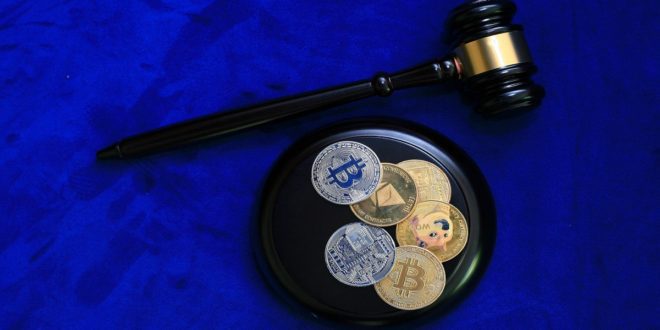As crypto and digital currencies become more common in the real world, more rules and regulations need to be implemented to stop “bad” people from using these currencies for doing bad stuff.
Governing bodies across the world have been struggling to catch up with the new and innovative ways criminals and crooks are using these digital currencies, however, various governments are starting to catch up. Namely, the European Union (EU) has managed to implement a new legislative proposal that will allow its governing bodies an in-depth look into crypto companies.
This work started in July of 2021 when the European Commission managed to toughen the Anti-money laundering (AML) and Countering the Financing Terrorism (CFT) enforcements. After working for more than a year, the EU voted for the creation of a new governing body that will fight these crimes in the crypto world in all EU member states and is called the Anti-Money Laundering Authority (AMLA).
The AMLA’s mandate is to improve the detection of crypto crimes and tighten the laws and loopholes through which criminals try to launder their digital gains.
On June 29, 2022, the European Council decided to start working on tightening the loopholes and bringing stricter rules for cryptocurrency anti-money laundering. These rules would encourage crypto firms to make more in-depth checks on their clients and customers to make sure they do not have any ill intentions. After running the background check, the crypto firm would be obliged to report any suspicious transactions to the regulatory bodies, which in term might result in a decrease in money laundering using digital assets.
Modern assets require modern laws…
By creating the new AMLA, the EU has tried to improve on and implement the new sixth AML/CFT Directive (AMLD6). This directive was implemented as a result of the acceptance and implementation of digital assets throughout the world. The AMLD5 was implemented back in 2018, and at the time, crypto and other newer digital assets were not as big as they are today, so nobody took them as seriously as they’re taken today.
AMLA has already started implementing new and improved rules that should improve the experience for customers.
One of the main rules that are meant to help with improved customer protection is the Markets in Crypto Assets Framework (MiCA). This rule was proposed in 2020 and, apart from bringing better customer protection, it is also aimed at improving market integrity and financial stability.
Another new rule is the Transfer of Funds Regulation (ToFR). This regulation obliges crypto and asset exchanges to obtain certain information on their customers and make them accessible to the governing bodies to improve the regulation of the markets.
In general, crypto creators and the crypto world are really against these regulations because this will compromise the whole base that crypto was built on. After all, anonymity, decentralization, and security are just some of the basic tenets of cryptocurrency, and by taking this away, the whole crypto world loses its integrity and anonymity.
The EU is moving forward with deploying the new governing body and is aiming to have it in place by 2024. The AMLA would have a headcount of 250 with different know-how and specializations in the world of crypto. However, these are just their projections. Namely, the current chair of the European Banking Authority (EBA) has concerns that they would run into various challenges and wouldn’t be able to find and recruit people with the needed skills. The main challenge is the competitive salaries offered by the private crypto sector.
However, today, that’s not that big of a problem because many exchanges had to reduce their payrolls so decreased their headcount. One of the biggest challenges for the EU at the moment would be to find experienced staff that wouldn’t be highly-priced.
Crypto companies didn’t like the new rules!
Coinbase and Binance are two of the biggest crypto exchanges in the world, and both of these exchanges would be hit hard by stricter laws.
Currently, crypto exchanges have much looser laws and rules, and built up their brands by only being compliant with local regulations wherever they’ve obtained operating licenses.
For example, Changpeng Zhao, the owner of the cryptocurrency exchange Binance, complained on Twitter that there are more than 7000 scammers who were trying to lie on their Linkedin profiles that they’re working for Binance, and only 50 of those profiles are actually working there.
Yes, LinkedIn’s “Know Your Customer” policy might not be the brightest, but why would Chengpeng brag about having 50 “real” people advertising they are working for the biggest crypto exchange office in the world when in a past interview, he stated that his company is employing 6000 people and is planning on recruiting 2000 more.
Industry veterans only need to take the fact that Binance doesn’t have a permanent headquarters into consideration, and you would be able to see why they don’t want a governing body overseeing their activities and the activities of their customers.
In the past, when people were critical of Binance, supporters defended its integrity by referencing its licenses and the fact that they have corporate roots in Malta, giving the freedom of catering to its EU clients. But not too long after, these claims were disputed by Malta’s financial regulator.
Taking everything into consideration, regulations, and oversight has come a long way from where it was before, but regulating the whole $2.1 trillion market is not an easy job for countries. Yes, the governing bodies should do a lot more and attempt to build a safer environment for their residents, but at the moment, it still remains extremely unregulated in some areas.


